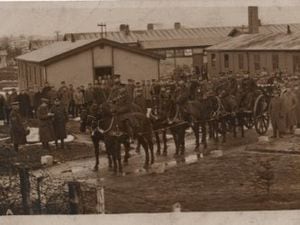Health bosses ‘proud’ to play part in the development of new vaccine
Midland health leaders say they are pleased to have contributed to the development of a new coronavirus vaccine which has been shown to be 89 per cent effective.

The Novavax jab, which is given in two doses, was shown to be 89.3 per cent effective at preventing Covid-19 in participants in its phase three clinical trial in the UK, and around 86 per cent effective at protecting against the new UK variant.
The jab's efficacy against the original Covid-19 strain was calculated to be 95.6 per cent.
The Novavax study is the largest ever double blind, placebo-controlled trial to be undertaken in the UK.
It recruited over 15,000 participants from 35 research UK sites in just over two months, including at Cheadle Hospital near Stoke-on-Trent, part of Midlands Partnership NHS Foundation Trust which also delivers services in Shropshire.
Professor Jeremy Kirk, clinical director of the Clinical Research Network West Midlands, said: "This is an incredible achievement and we are very pleased to have contributed to the development of this vaccine.
"The efficacy shown against the emerging variants is also extremely encouraging.
"All our staff and partners who worked on the trial and of course the volunteers, should be very proud of the role they have played."
A significant proportion of participants taking part in the study were recruited through the NHS Covid-19 Vaccine Research Registry – an online registry of over 390,000 people who have signed-up to be contacted about taking part in Covid-19 vaccine studies.
More than 25 percent of enrollees in the trial were over the age of 65, while a large proportion of volunteers had underlying medical conditions generally representative of the population.
The UK phase three trial is a randomised, placebo-controlled, observer-blinded trial during which 50 per cent of volunteers were given two intramuscular injections of the vaccine candidate, 21 days apart, while the remaining received a placebo.
Claire Hall, of Muxton, on the edge of Telford, was one of the thousands of volunteers who took part in the trial and attended appointments at Cheadle Hospital.
Generation
Describing why she took part, Claire said: "Many people are alive today because of clinical research, because of vaccines. People have had to go through those trials. Now it’s our generation’s turn to do our bit."
Claire was taken through a thorough health questionnaire as well as key points about how the study will work before she began.
“After a blood test and various observations – blood pressure, pulse, oxygen saturation – I was given an almost painless injection,” she added.
The vaccine will need to be approved for use by the Medicines and Healthcare Products Regulatory Agency before it can be used, but the UK Government has already secured 60 million doses.
The UK has so far approved three coronavirus vaccines for emergency use – one from Oxford University and AstraZeneca, another by Pfizer and BioNTech, and a third from drug firm Moderna.
The UK Vaccines Taskforce and National Institute for Health Research (NIHR) Clinical Research Network have played vital roles in the rapid recruitment and enrollment of volunteers.
People can get more information about volunteering for future vaccine studies by visiting www.nhs.uk/researchcontact





